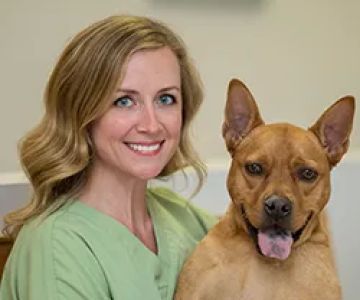A Career as a Veterinarian: What You Need to Know
When I first considered becoming a veterinarian, I was drawn to the idea of helping animals and making a real difference in their lives. A career as a veterinarian is not only rewarding but also challenging and full of opportunities. Whether you're interested in treating pets, working with wildlife, or contributing to public health, the field of veterinary medicine offers a variety of paths. However, it's important to understand the requirements, responsibilities, and the emotional and physical challenges that come with this career choice.
As a veterinarian, you’ll need to have a deep understanding of animal health, surgical procedures, and the emotional intelligence required to handle distressed animals and concerned pet owners. This profession can be incredibly fulfilling for those who are passionate about animals, but it requires years of education, skill development, and a compassionate approach. Let's dive into the various aspects of a veterinary career, from the education required to the skills needed, and how you can succeed in this dynamic field.
1. Education Requirements for Becoming a Veterinarian
The road to becoming a veterinarian starts with a strong foundation in science, particularly biology, chemistry, and physics. As an aspiring veterinarian, you'll need to earn a Bachelor's degree, preferably in a related field like animal science, biology, or pre-veterinary studies. However, this is just the beginning of your journey. Veterinary schools are highly competitive, and it typically takes four years of additional schooling after completing your undergraduate degree to earn a Doctor of Veterinary Medicine (DVM) or Veterinary Medical Doctor (VMD) degree.
While in veterinary school, you'll be trained in a range of areas, including animal anatomy, physiology, pharmacology, and diagnostic procedures. Hands-on experience is crucial, so veterinary programs often include clinical training where you'll get to work with real animals under the supervision of experienced veterinarians. The education process is intensive, and it requires both academic excellence and a deep passion for animal care.
2. Essential Skills for Veterinarians
A career as a veterinarian requires a combination of technical and soft skills. First and foremost, you must have a strong understanding of animal biology and medicine, but it goes beyond just knowing how to treat animals. Here are some essential skills that successful veterinarians possess:
- Problem-Solving: Diagnosing and treating animal health issues requires critical thinking and problem-solving skills. Veterinarians must be able to assess symptoms, interpret test results, and decide on the best course of action.
- Communication Skills: As a veterinarian, you will need to communicate with pet owners, explaining diagnoses, treatments, and procedures clearly and compassionately. You'll also need to work well with other veterinary staff.
- Manual Dexterity: Performing surgeries, administering injections, and handling animals with care all require fine motor skills and dexterity.
- Emotional Intelligence: Working with animals can be emotionally taxing, especially when animals are in pain or distress. Being able to handle these emotions and communicate compassionately with pet owners is essential in this field.
- Stamina and Physical Endurance: A veterinary career often involves long hours, physical work, and the ability to stay focused under pressure.
Developing these skills through training and experience is crucial for anyone considering a career as a veterinarian. It's a job that requires a deep connection with animals and the ability to maintain a high level of professionalism, no matter the situation.
3. Work Environment and Job Responsibilities
Veterinarians can work in a variety of settings, depending on their specialization and interest. Some of the most common environments for veterinarians include:
- Private Practice: Many veterinarians choose to work in private practice, either in small animal clinics, equine practices, or mixed-animal practices that treat both small pets and farm animals.
- Research: Veterinary researchers often work in academic institutions, pharmaceutical companies, or government agencies, studying animal diseases, new treatments, and vaccine development.
- Public Health: Some veterinarians work with government organizations like the Centers for Disease Control and Prevention (CDC), managing zoonotic diseases (diseases that can be transmitted between animals and humans).
- Wildlife and Conservation: Veterinarians with a passion for wildlife may work in conservation efforts, helping protect endangered species or providing care to animals in zoos or aquariums.
Regardless of the setting, the primary responsibilities of a veterinarian revolve around diagnosing and treating animal diseases, performing surgeries, administering vaccinations, and educating pet owners on proper care. The job can be incredibly rewarding, especially when you see an animal recover and return to its normal, happy self. However, it’s also a career that can come with emotional and physical challenges, as many veterinarians face difficult situations, such as euthanasia or dealing with animals suffering from severe illnesses.
4. Salary and Job Outlook for Veterinarians
Veterinarians are generally well-compensated, but their salary can vary based on factors such as location, specialization, and experience. According to the U.S. Bureau of Labor Statistics, the median annual salary for veterinarians was approximately $99,250 in 2020. However, those working in specialized fields, such as surgery or pathology, can earn significantly higher salaries.
In terms of job outlook, the demand for veterinarians is expected to grow steadily in the coming years. The American Veterinary Medical Association (AVMA) predicts that there will be an increasing need for veterinarians, particularly in rural areas and for certain specialties like dentistry and surgery. The growth of pet ownership, as well as an increasing emphasis on animal welfare, will contribute to this demand.
5. How to Pursue a Career as a Veterinarian
If you’re passionate about animals and interested in becoming a veterinarian, there are several steps you can take to get started:
- Get the Right Education: Start by earning a Bachelor’s degree in a related field, such as animal science or biology. Focus on subjects like chemistry, biology, and physics to build a solid foundation.
- Gain Experience: Volunteering or working in animal shelters, clinics, or farms can provide invaluable experience and help you build connections within the veterinary community.
- Apply to Veterinary School: Research veterinary schools that are accredited by the American Veterinary Medical Association (AVMA) and apply to programs that suit your goals and interests.
- Earn Your DVM or VMD: Complete the veterinary program and obtain your Doctor of Veterinary Medicine (DVM) or Veterinary Medical Doctor (VMD) degree.
- Specialize (Optional): After obtaining your degree, you may choose to specialize in a specific area of veterinary medicine, such as surgery, dermatology, or cardiology.
By following these steps, you can set yourself on the path toward a fulfilling and impactful career as a veterinarian.
SEO Title: How to Pursue a Career as a Veterinarian: Everything You Need to Know SEO Keywords: career as a veterinarian, veterinary education, veterinary career path, becoming a veterinarian, veterinary profession SEO Description: Discover everything you need to know about becoming a veterinarian, including education requirements, skills needed, job outlook, and tips for pursuing a rewarding career in veterinary medicine.










